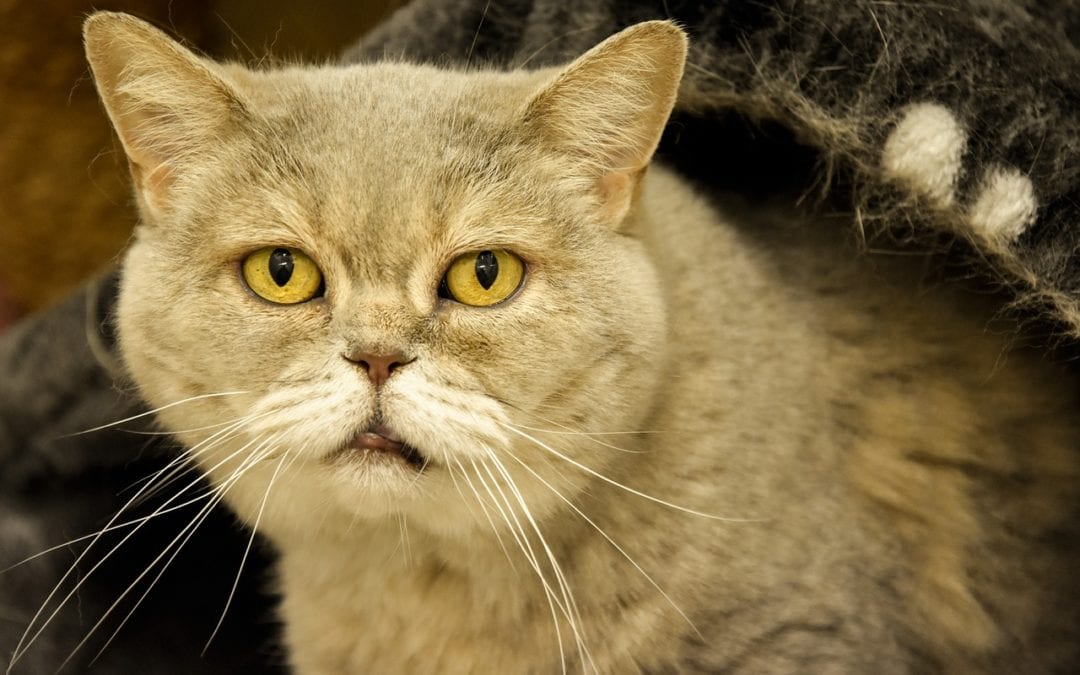Our beloved pets are not immune to the effects of aging. You may be surprised to learn that senior furry friends can experience cognitive dysfunction. Here are the common signs to look out for:
- Sleep-wake cycles — One of the most common complaints of cognitive dysfunction is an off-balance sleep-wake cycle. These pets are typically restless, will pace or continually wake up, and may excessively vocalize throughout the night.
- Interaction — Your pet may display a decreased interest in socializing and interacting with your family and become irritable or aggressive with visitors, other animals, or familiar family members.
- Activity — One change in pets that is commonly confused as an old-age problem is a decreased desire to play or exercise. Pets may also display repetitive behaviors, such as circling, chewing, licking, or pacing.
- Disorientation — Your pet may get stuck behind furniture or doors, have difficulty getting around objects, fail to recognize familiar people or pets, or get lost in your home or yard.
- Anxiety — Pets with cognitive dysfunction may exhibit increased anxiety when separated from their owners and be more fearful of visual or auditory stimuli.
- House-soiling, learning, and memory — Your pet may be less likely to respond to previously learned commands or their name and suffer from decreased focus and increased distraction. You may also notice inappropriate elimination issues if your pet forgets their previous house-training.
Commonly referred to as DISHAA, this acronym of cognitive dysfunction signs will help you spot changes in your pet sooner, allowing for more effective treatment.
We at Chathams Small Animal Hospital are there for your pet through all stages of life. If you have any questions or concerns about your senior pet, contact us.

